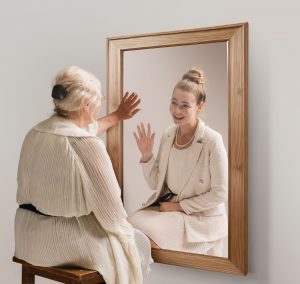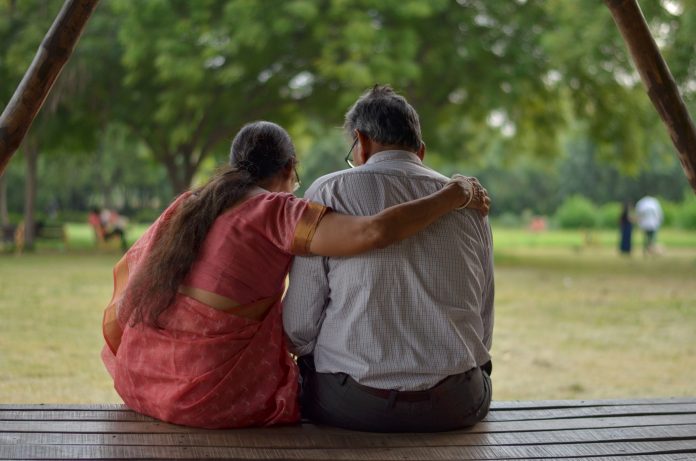Reading Time: 8 minutes
Those were the days, my friend
we thought they’d never end
we’d sing and dance forever and a day
we’d live the life we choose
We’d fight and never lose
for we were young and sure to have our way
In a conversation, my grandfather very casually told me that they were at the railway station, “Signal ho gaya hai, train kabhi bhi aa sakti hai aur humlog gaadi chadd jaayenge”. I dismissed this but these words stayed with me even after 50 years. My father passed away at 80 and was in and out of the hospitals in the last two years of his life. Yet he did not discuss death.
We continuously made travel plans knowing fully well that these plans would never fructify but it was great conversation.
As I crossed my 70th birthday, I realised I had crossed a border (The Bible prescribes three scores and ten is the age to live up to). Now that I am on the other side, I would be classified as an old / senior. Old is a country no one wants to visit.
As a young girl, my Aunt Mohini was reprimanded by her mother for not behaving well on a visit to her great- grandmother’s home.
“She’s old,” said Mohini. “I don’t like old people”
When her mother pointed out that one day Mohini too will be old, like her great-grandmother, Mohini laughed. “No, I won’t. How can I be old? I will be just the way I am.”
Towards the end of her life, Mohini is 80 and must somehow accept that she is “in the departure lounge”. “Check-in was a very long time ago,” she says. With her equally elderly husband, Shyam, Mohini ponders what they can do with the time remaining.
The nostalgia associated with old age, if it occurs, appears incurable, since there can be no possibility of a return to an irrecoverable youth. To describe ageing and the emotions that come with it as grief would be a strong word. For, it’s not the sharp grief that follows a bereavement (though bereavements do accumulate with the years), but a more elusive emotion. One that is, perhaps, closest to the bone-gnawing sorrow of homesickness. But as with nostalgia, how badly those afflicted suffer seems to depend on how they manage their relationship with the past.
Most people start to notice changes as they enter their 50s and 60s. Although these changes can cause consternation, most age-related memory and thinking problems don’t stem from an underlying brain disease such as Alzheimer’s Disease.

Instead, what appears to be a memory problem may simply reflect a slower processing speed and poor encoding and retrieval of new memories as a result of diminished attention. However, even though your brain may be slower to learn and recall new information, your ability to make sense of what you know and to form reasonable arguments and judgments remains intact.
Many of these limitations are reversible and related to poor sleep, but structural changes that take place in your brain as you age can explain some of these developments. Just as you may not run as fast or jump as high as you did as a teenager, your brain’s cognitive power—that is, your ability to learn, remember, and solve problems—slows down with age. You may find it harder to summon once familiar facts or divide your attention among two or more activities or sources of information. These changes affect your ability to focus, so you may find yourself getting more easily distracted than you were when you were younger.
The result is that as you age, it takes longer to absorb, process, and remember new information. Therefore, you not only learn information more slowly, but you also may have more trouble recalling it because you didn’t fully learn it in the first place.
Hearing loss that often accompanies ageing makes it more difficult to distinguish speech in a noisy environment. Because hearing then requires more concentration than usual, even mild loss of the ability to focus can affect speech comprehension. At this time, I make an expression of agreeing with a person and ask another question to take the conversation elsewhere.
Even the aches and pains of getting older can affect focus. Pain itself is distracting, and some of the medications used to treat it also can affect concentration.
Between 50 and 60 is also the age when we have our mid-life crises. We join gyms, and take up running; we speak for the first time of ‘bucket lists’ – the term itself being an attempt to diminish the sting of time’s depredations. None of these will save us from the real Age of Grief, which comes later and hits harder because it is largely hidden. And we’ll be expected to endure it in silence. Middle age is sometimes referred to as The Age of Grief. It’s when we first glimpse our own mortality; we feel youth slipping away into the past, when the young people in our lives begin to assert their independence.

Last week, I met a very old friend after 50 years, we recognised each other in one second. She was extremely extremely pretty in her youth. Now she had become a little bent, grayed and much wrinkled. I experienced a rush of bafflement as I looked at her in disbelief at how she had aged.
We talked of the good times, the carefree living, the singing, the dancing and then I asked myself what happen to me? The tight chest now has two man-boobs, the tight butt is now a bag of flour, the biceps thru the sleeveless singlet are now flabby armpits, the mop of hair has considerably disappeared and there are two deep lines on the either side of face, wrinkles they call them. Do I have a sense of who I was back then and is that person still a part of who I am?

On the way back home, I thought of my own youth & the fun time one had. I realised that I had travelled very far from my younger self then I had imagined. This realisation came with a jolt of emotion that felt like a bereavement. Disbelief at the distance between the young self and now self is one of the factors of this emotional turmoil. I suppose I now have to negotiate my own relationship with time and reach an acceptance on the distance travelled. Youth was a chapter of exuberance and joy. It was a place I left behind and a place I held close to my heart.
Flabby armpits – how can you exercise the armpits? But the fact is that our bodies are capable of more severe betrayals than mere flabby armpits. In time they may cause us to be exposed in skimpy, front-opening or back-opening hospital gowns under the all-seeing eye of the CT scanner. They may deliver us into the skilled, ruthless hands of a surgeon. Our very blood may speak of things we will not wish to hear.
One by one, we will relinquish the driving licence. Perhaps we will have to give up the freedom of walking without the aid of a stick, or walker. This loss of independence and the feeling of helplessness is really difficult. The emotional impact of this is very profound. At that time it doesn’t really matter if people see you with a walking stick. Someone is bound to comment that he is very old and uses a walking stick. Besides there could be other dietary restrictions imposed by conditions such as diabetes, and the invisible disabilities of diminished hearing and eyesight.

A failing memory, one would think, must be the final straw. And yet, what seems to be the actual final straw is the situation, reported time and again, where an old person feels ‘unseen’, or ‘looked through’, and for indefensible reason finds himself being missed out in a family function or the inconvenience of being a piece of furniture that has lost its utility. The wound deepens when you are referred to as ‘Buddha’ old man and it’s worse to be told off in many words that you are irrelevant. Sometimes even the spouse and the child you have so lovingly brought up ignores/ avoids you. Even your grown-up children sometimes want to treat you like a child. Being 70 is no laughing matter. But I try to joke about it to myself for these are the good old days.
While everyone’s experience with ageing is different, experts are increasingly finding that having a positive mindset is associated with ageing well. My grandmother who lived in small-town India, lived up to the age of 85. She was healthy and fit up to the day before she passed away. Not only did she cook all the meals and take great care of the family, but she also looked into the needs of the staff in the house. She reknitted our old sweaters for the servants. She took all our old clothes and made razais. Nothing ever went to waste.

I often asked her to let the servants do some cooking and not work so hard herself. Her answer was that if she were to stop working she would be bed-ridden and become an invalid. In between all this, she found time to go to the Gurudwara or attend kirtans and all the religious and social duties. She got together a group of women and made squashes, lemon, orange, and pineapple. She also made papad and wadis. She made pickles not just for our own house but for a lot of friends and family who probably just had chapati and pickles for their meals. Mithai on Holi and Diwali were made at home. What she couldn’t do she would call for a Halwai or cook and make matrhis and other namkins but all at home.
This daily routine was her exercise, stress management, creativity and her life had a sense of purpose. She cooked and ate healthy food and remained mentally active till her last day. She lived a long and healthy life and maintained that you can’t stop the march of time, but you don’t have to dread it. The benefits of exercise for successful ageing are immeasurable. Exercise decreases the incidence of diabetes and other cardiovascular diseases helps fight arthritis, osteoporosis and poor balance. Staying mentally active also helps maintain cognitive function, mental wellbeing and promotes independence in older age.

Age is the evolving story of the self. It’s also a time to reflect on our legacy, our achievements and find satisfaction in leaving a positive mark in the community and the family. It’s also a time to recognize that Age is not just a number but a journey filled with opportunities for growth, self-discoveries, wisdom, experience, emotional richness and a sense of fulfillment. It’s also a time to practice gratitude. Thanking God for his kindness, for the wonderful friends and family that he gave you. It is ok to feel sad, frustrated and accept the changes that come with age. This will help ease the emotional burden. Alan Dillon very famously said “I don’t let the old man in”.








